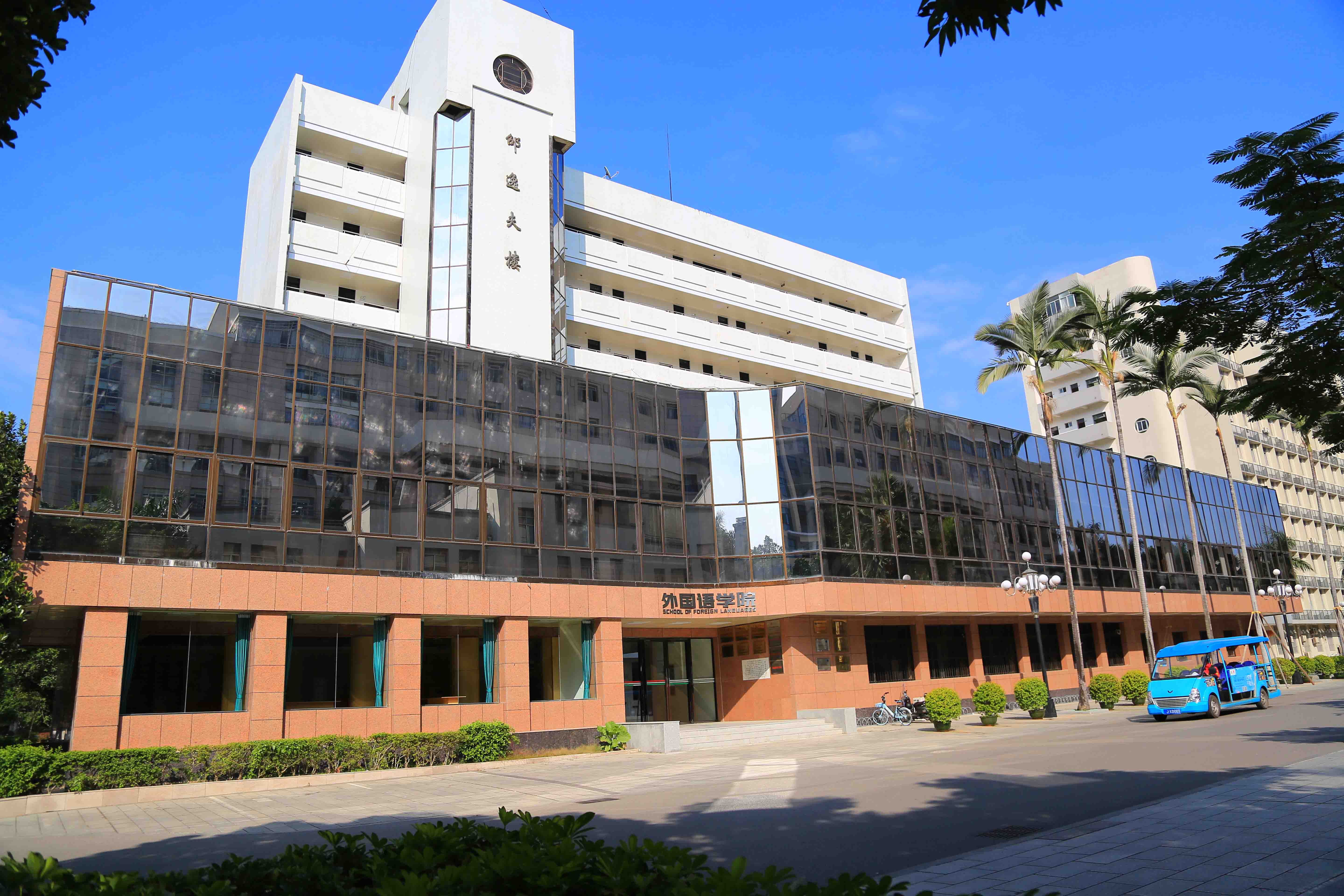
https://fls.gxu.edu.cn/en/Home.htm
Established in 1928, Guangxi University founded its Department of Foreign Languages in 1947, with the first director being the renowned diplomat, State Council Counselor, and Cambridge PhD, Mr. Luo Jiezhi. In 1947, the Department of Foreign Languages offered its first undergraduate English program, followed by an undergraduate Russian program in 1950. In 1953, due to a nationwide adjustment of university departments, Guangxi University was temporarily closed, and the faculty and students of the department were transferred to four other universities, including Sun Yat-sen University and Wuhan University. In 1958, Guangxi University reopened, and the Department of Foreign Languages resumed offering undergraduate programs in English and Russian. In 1973, the department started to offer an undergraduate Japanese program.
In 1996, the Department of Foreign Languages, the Department of College English Teaching and the Guangxi Foreign Language Training Center merged to form the School of Foreign Languages. In 2000, the School introduced a Business English program. In 2007, the Southeast Asian Languages Department was established, offering undergraduate programs in Thai and Vietnamese. In 1993, the School was accredited to grant master’s degrees in Translation Theory and Practice. In 2010, it started to offer the master’s program in Foreign Languages and Literature.
Academic Programs
The School achieved significant milestones in the development and management of programs. The English major was designated as a National First-Class Program in 2019, followed by the Japanese major receiving Provincial First-Class status. In 2020, the Vietnamese major was recognized as a National First-Class Program and the Translation major was awarded Provincial First-Class accreditation. In 2021, both the Translation and Thai majors were approved as National First-Class Programs. In the same year, the School was honored as one of the first institutions selected for the Ministry of Education’s New Liberal Arts Research and Practice Projects.
In 2024, the School of Foreign Languages’ first-level discipline in Foreign Languages and Literature was ranked 69th in the Soft Science China University Rankings by Subject, placing it in the top 30% nationwide and second among the 14 “Double First-Class” Universities jointly established by the Ministry of Education and provincial authorities.
Currently, the School offers master’s degree programs in translation, including English Translation, English Interpretation, Japanese Translation, and Vietnamese Translation. The undergraduate programs include English, Japanese, Vietnamese, Thai, and Translation. From 2019 to 2021, four of the School’s undergraduate programs were accredited as national first-class majors, and eight courses received provincial first-class status. The School has also been acknowledged for its talent development and excellent teaching team at the provincial level. The English major is designated as a national key program, and Foreign Language and Literature is a key discipline in the province. The English, Japanese, Vietnamese, Thai, and Translation programs are renowned for their excellence in the province.
Faculty and Achievements
The School boasts a strong faculty team comprising 121 members, including 19 professors, 36 associate professors, and 32 teachers with doctoral degrees. Additionally, 12 teachers are currently pursuing doctoral degrees. The School is proud to have several distinguished faculty members, including one Junwu Scholar, three Junwu Distinguished Professors, three other distinguished professors, one recipient of a provincial-level teaching award, and one university-level teaching award winner. Most faculty members have gained international experience through study and research abroad. Some teachers have received accolades in national teaching competitions.
Over the past five years, the School undertook more than twenty research projects, including one sub-project of the National Social Science Fund, seven National Social Science Fund projects, and 15 provincial and ministerial-level projects. In addition, the School received awards from the Ministry of Education for Outstanding Scientific Research Achievements and Guangxi Outstanding Achievements in Social Sciences.
Presently, the School oversees two academic journals: the English journal “Asia Pacific Translation and Intercultural Studies”, published by Routledge, and the Chinese journal “Asia Pacific Interdisciplinary Translation Studies”, published by Wuzhou Communication Press.
The School also hosts prominent research institutions, including the Asia Pacific Institute for Translation and Intercultural Studies (a university-level institute), the Corpus and Technology Research Center for Translation Studies (in collaboration with John Benjamins Publishing Company), and the Asia Pacific Forum for Translation and Intercultural Studies, which involves 18 member countries.
Contributions and Engagement
Annually, the School organizes two to three large-scale international and domestic academic conferences and provides high-end translation services, including simultaneous interpretation for major international events like the China-ASEAN Expo and the China-ASEAN Business and Investment Summit. These efforts contribute significantly to local economic and social development, garnering broad acclaim.
Vision and Mission
Guided by the principle of “morality education” and the motto “Diligence, Sincerity, Humility, Learning, Innovation,” the School remains committed to cultivating exemplary talents. Emphasizing teaching reform and quality enhancement, it prepares graduates with both virtue and talent, equipped with an international perspective. Currently, the school has 1,151 students, including 790 undergraduates and 361 graduate students, who frequently excel in national and regional foreign language competitions. The School boasts a high pass rate in the National Translation Professional Qualification Examination, ranking among the top in similarly ranked universities.
In the new era, the School of Foreign Languages will continue prioritizing talent development, strengthening discipline and platform construction and fostering collaborative teamwork. With a focus on seizing opportunities and advancing comprehensive development, the School is dedicated to achieving “Double First-Class” status and contributing substantially to national economic and social progress.